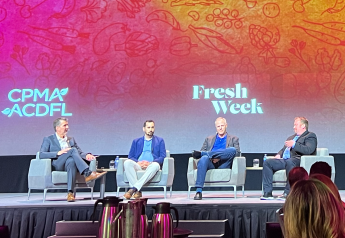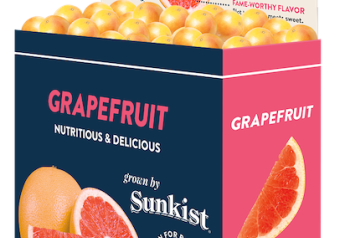Suppliers point to government policy as one reason behind labor shortage
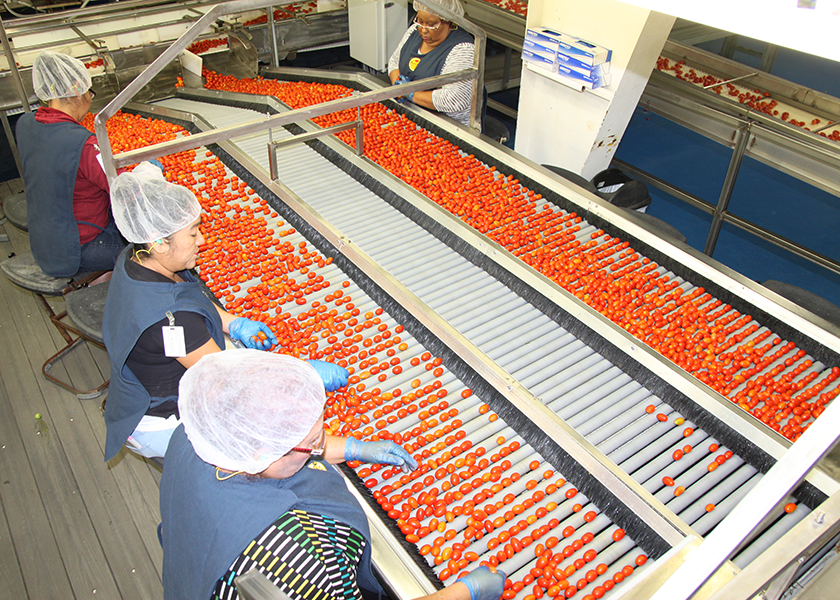
With an online survey, The Packer is gathering input on labor conditions produce grower-shippers are experiencing.
The early results indicate farmworker numbers were short of what those participating in the survey need.
Through late April, six out of eight suppliers responding to the survey said they were experiencing labor shortages, with one grower not yet starting and another East Coast tomato grower (using H-2A workers) reporting no shortage.
Five out of eight respondents said they used the H-2A program.
Running lean
The six grower-shippers reporting a labor shortage said they were 10% to 30% short of being fully staffed for both field labor and packing house operations.
Respondents answered the question, “If you are experiencing a labor shortage, what do you believe are the reasons for the shortage?” A follow-up question was, “One thing I wish the public and politicians knew about the farm labor situation is ...”
— East Coast vegetable grower
- On reasons for the shortage: “COVID, stimulus money, unemployment benefits.”
- On what the supplier wishes the public and politicians knew: “Many businesses are currently experiencing labor shortages due to easy-to-obtain unemployment benefits offered to the public. These benefits exceed potential wages in most cases. It is much easier to stay home and easily live off the government than to work and earn your living.”
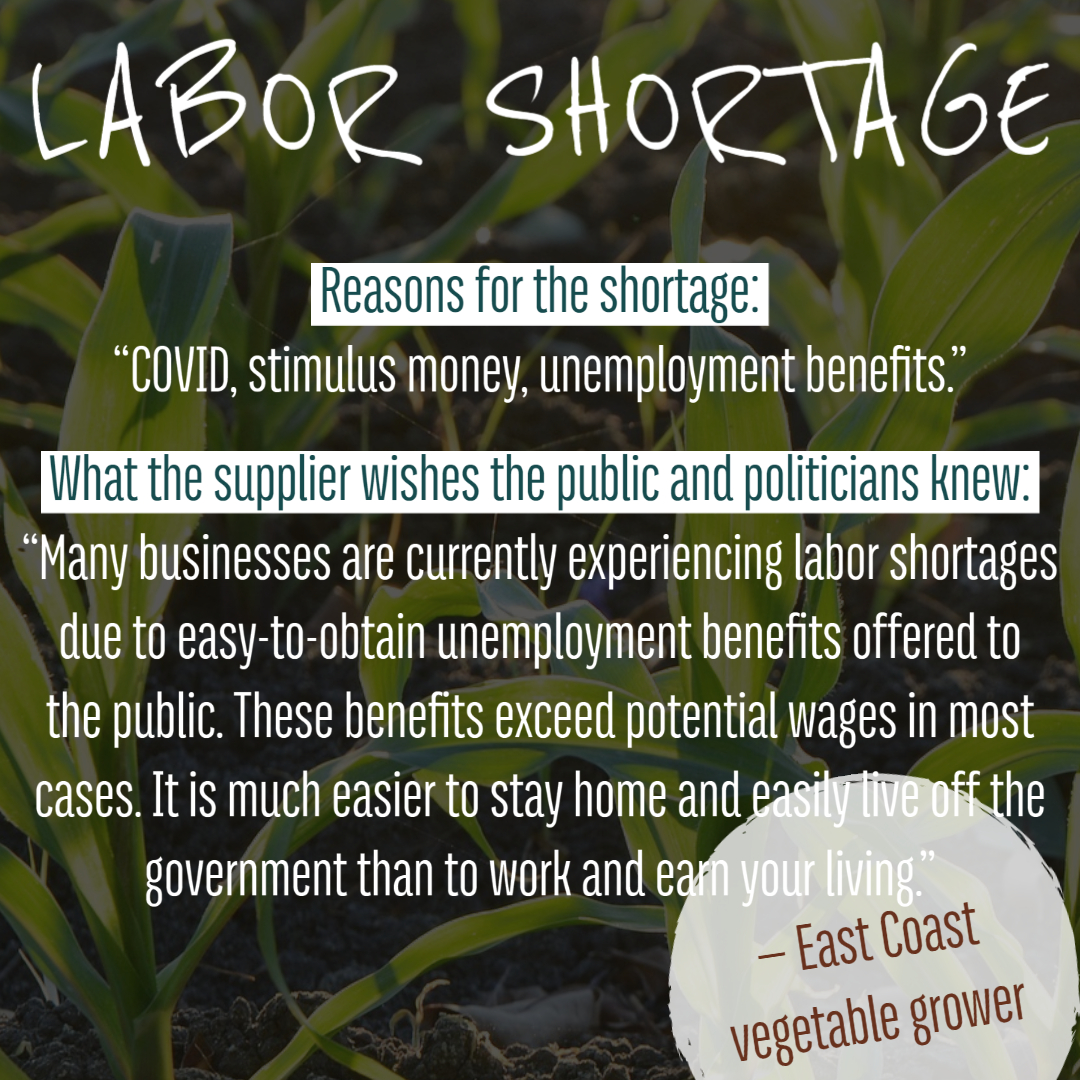
— East Coast greenhouse hiring manager
- On reasons for the shortage: “It is more and more difficult to apply for and obtain foreign workers. We actually prefer to use local labor, but the fact of the matter is local labor is not looking to do the types of tasks required in agriculture. These stimulus payments and unemployment benefits have only made things worse. We have raised our local wages 12% since the beginning of the pandemic and still no one wants to work. This is a huge risk to our business. Those in Washington have no clue what it takes to get fresh food to their plate. I feel changes will only come when it’s too late for a lot of farms.”
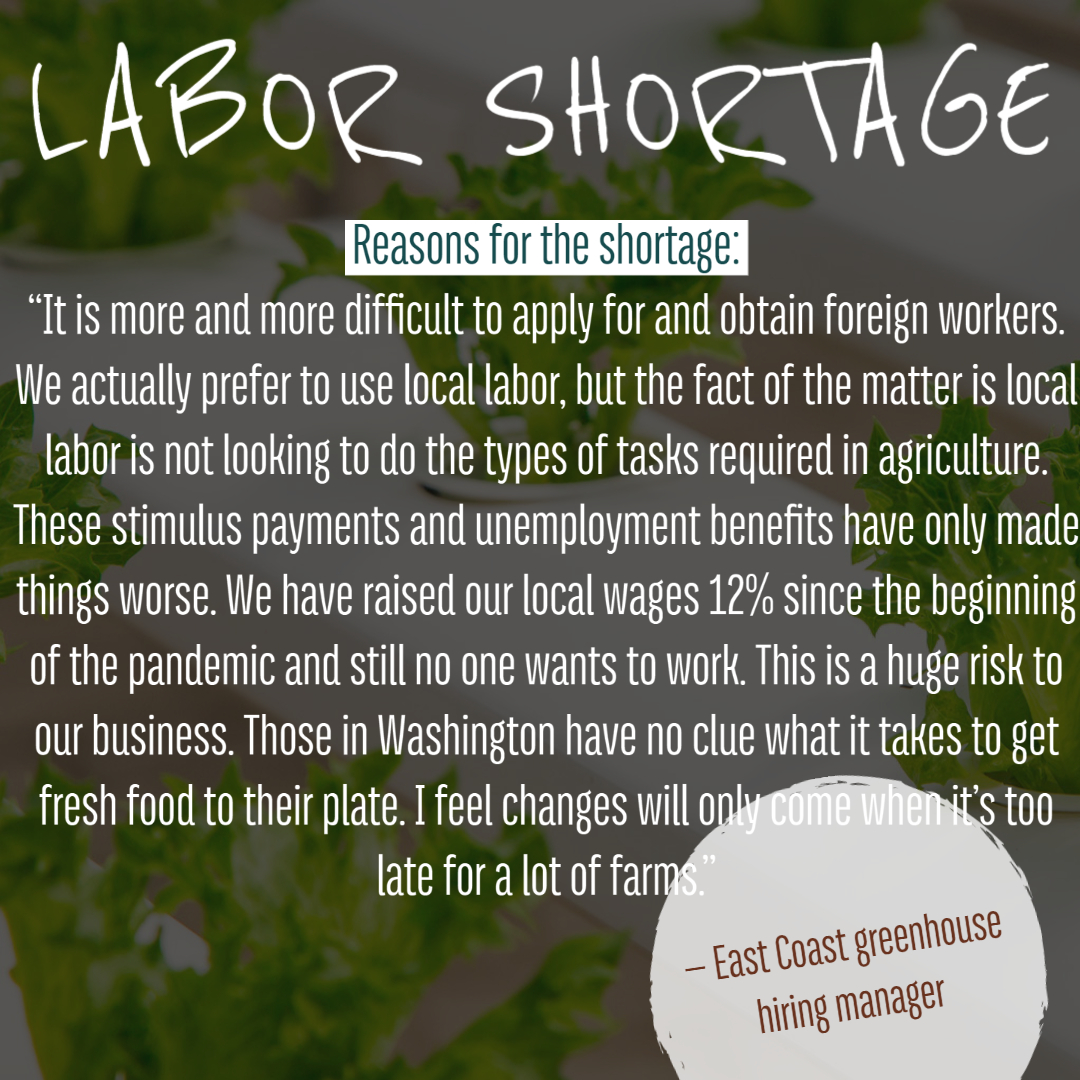
— Southeast grower of cotton, corn and soybeans
- On reasons for the shortage: “Incompetent government workforce, shortage of workforce, current workforce policy because of COVID-19, etc. Not real sure. I can’t get an answer on who dropped the ball.”
- On what the supplier wishes the public and politicians knew: “If our biggest competitor for labor wasn’t the government, we wouldn’t have to rely so heavily on the H-2A work visa program.”
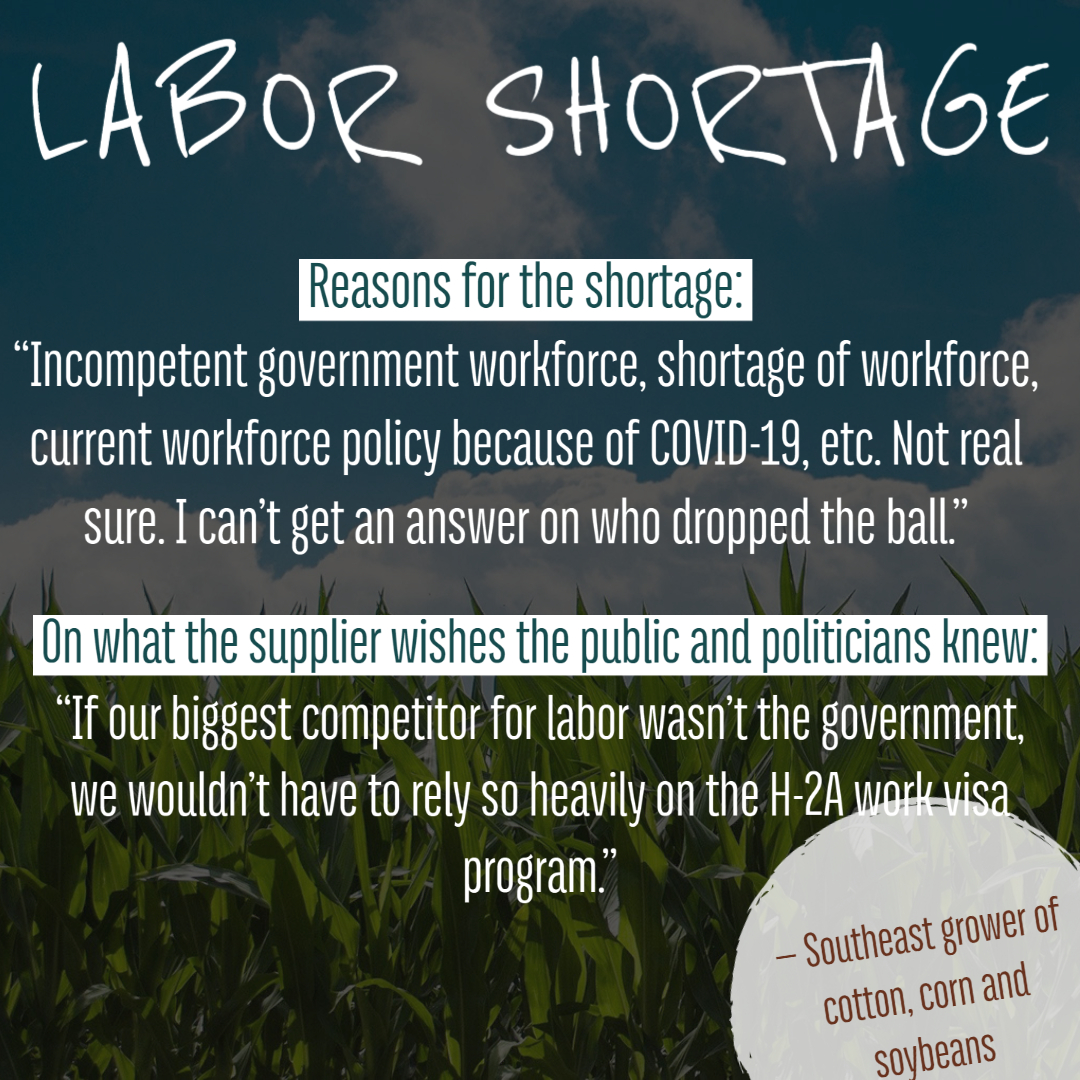
— East Coast food processor
- On reasons for the shortage: “American workers not interested in this type of work, enhanced unemployment benefits.”
- On what the supplier wishes the public and politicians knew: “It is critical to the food supply in America and if immigration and H-2A is not modified the food supply will be impacted significantly. Americans are NOT interested in this type of work and no matter what we pay, this will not change. They must do something immediately.”
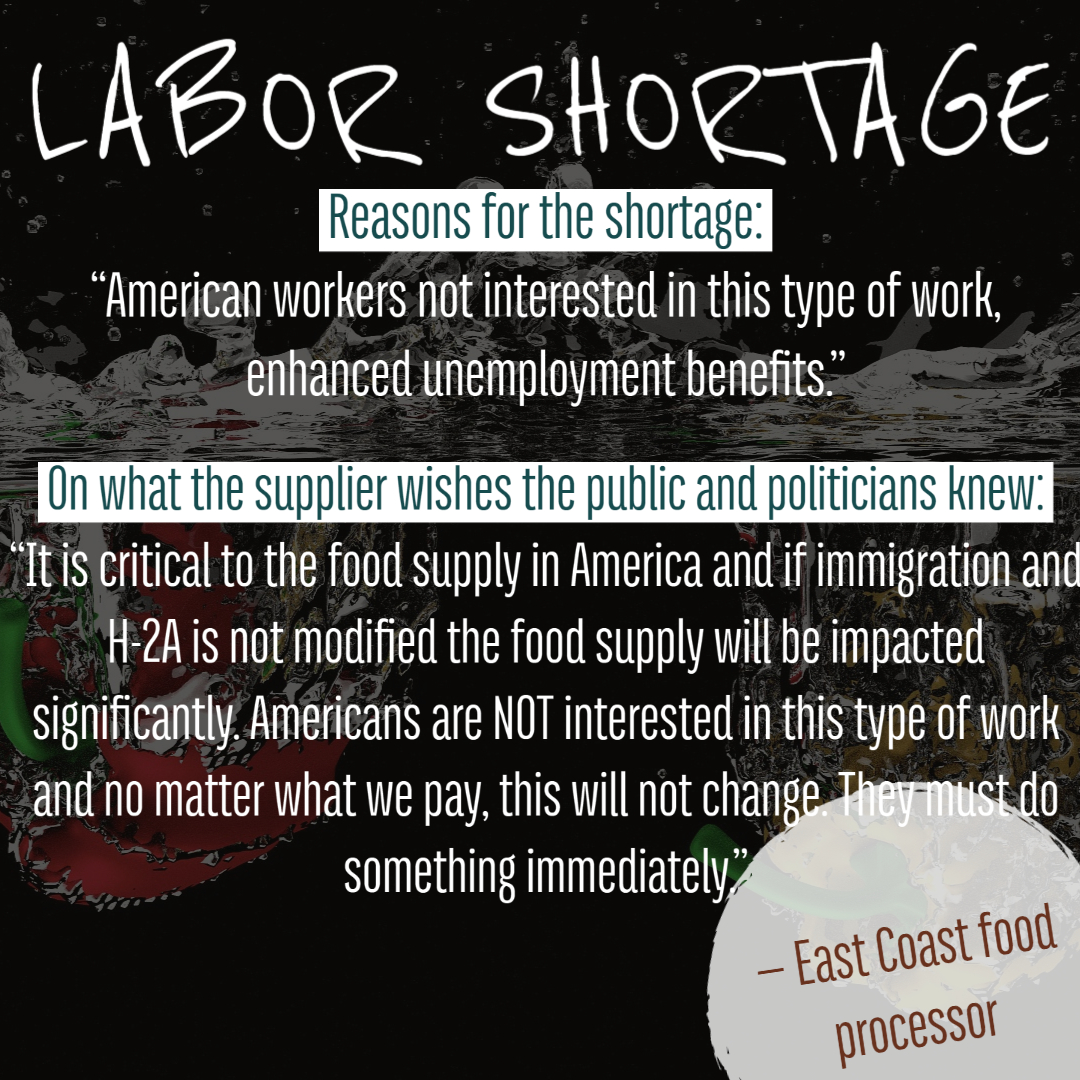
— Northwest potato and beet grower
- On reasons for the shortage: “Not enough domestic labor available.”
- On what the grower wishes the public and politicians knew: “Without H-2A and foreign workers, we could not keep operating our farm. Our local unemployment rate is around 3% and we are in a severe labor shortage. Stop paying people not to work!”
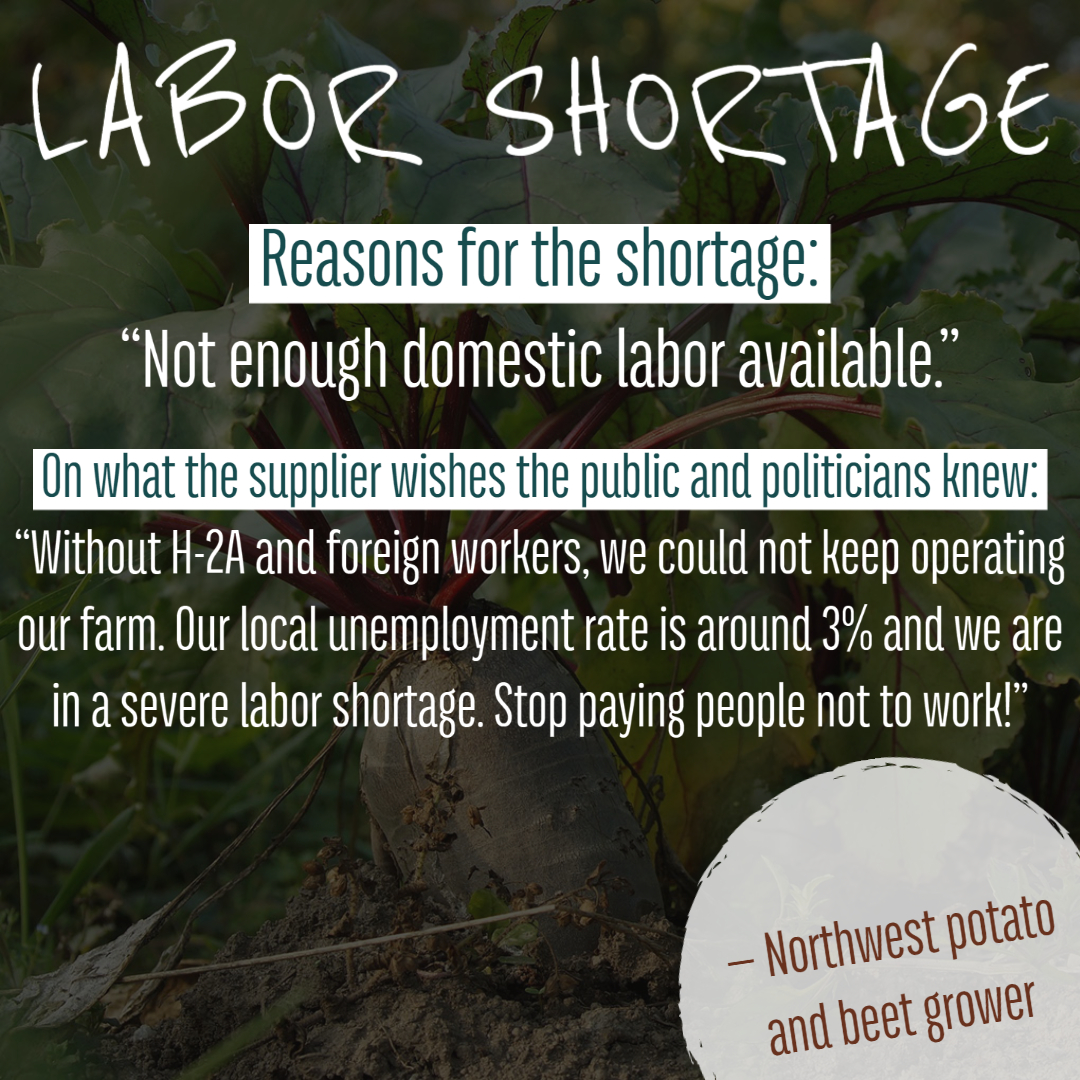
— East Coast vegetable grower who uses H-2A program
- On reasons for the shortage: “Have not experienced labor shortage yet.”
- On what the grower wishes the public and politicians knew: “We need these H-2A visas processed more effectively. The time process still has not changed from 75-90 days before you can get an appointment to get the labor that is needed.”
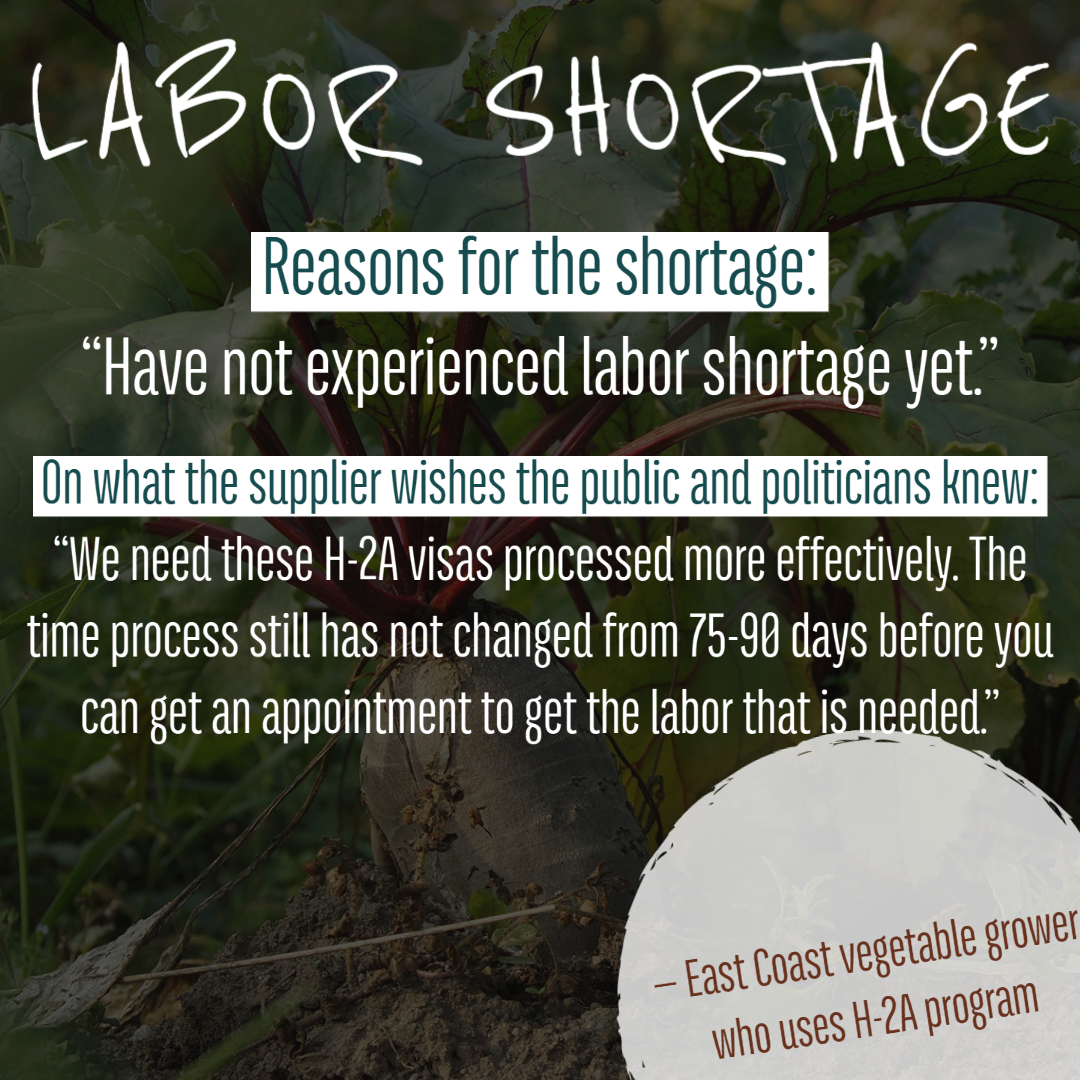
— Midwest mushroom producer
- On reasons for the shortage: “Government paying people too much to stay home in stimulus checks and unemployment benefits.”
- On what the grower wishes the public and politicians knew: “Our current situation is not sustainable. The higher wages go the more food will cost and automation will become cheaper, therefore less jobs for people.”
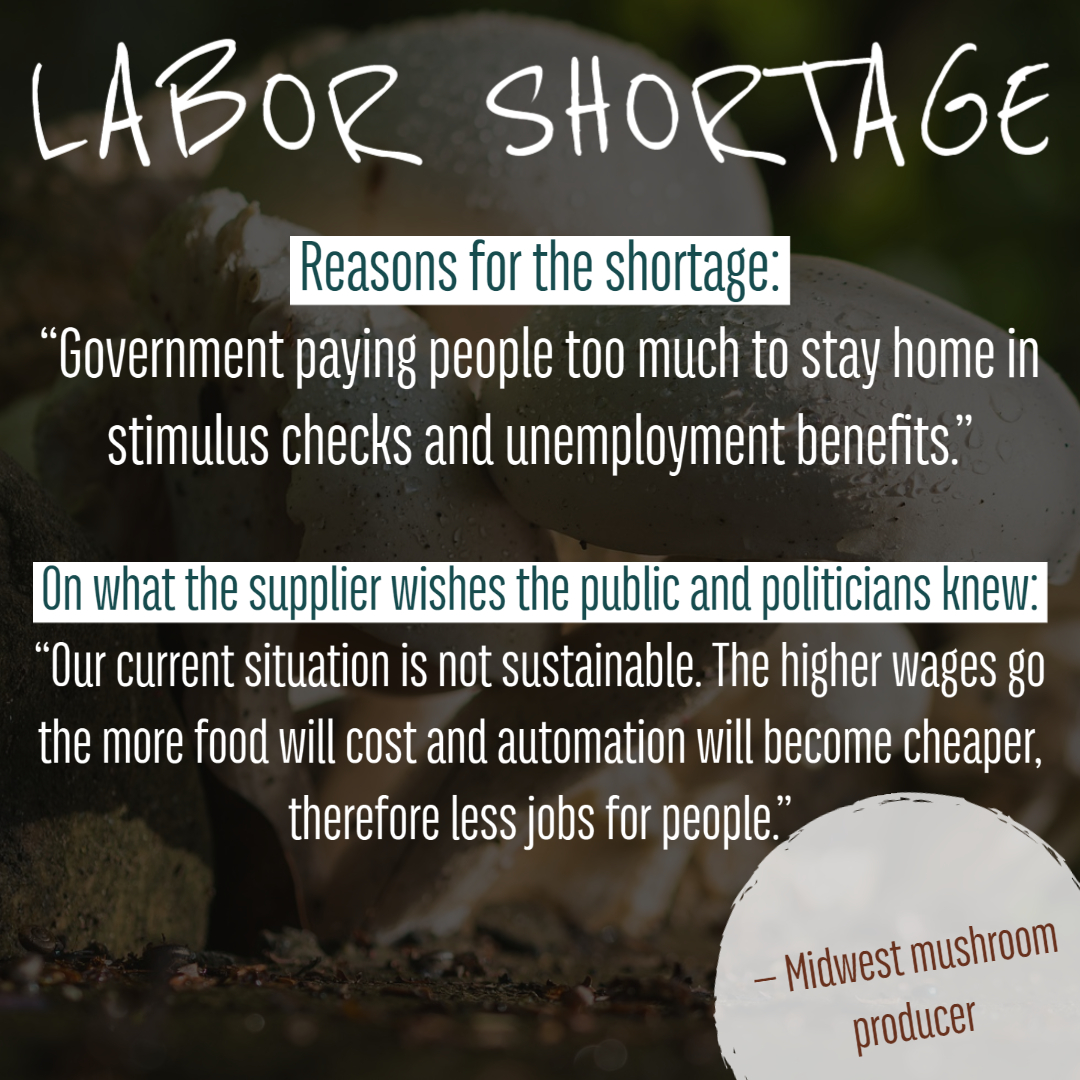
— Western citrus producer
- On reasons for the shortage: “Government entitlements. No incentive to work when you can get over $500/week not working.”
- On what the grower wishes the public and politicians knew: “The H-2A visa program is essential to our livelihood. While it’s unfortunate to realize the dollars going back into foreign countries, we have no logical other options.”
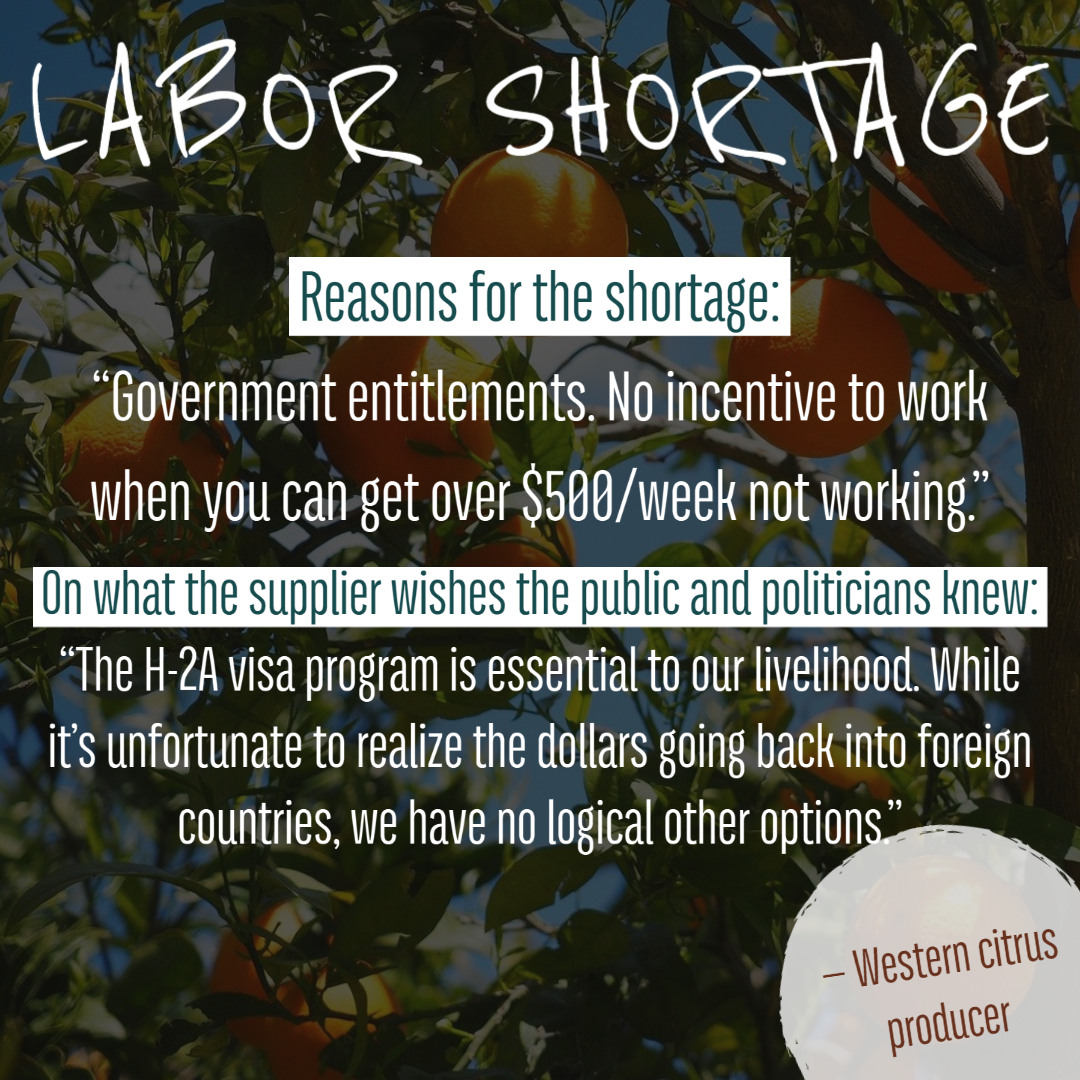
The Packer invites growers and other food handlers to fill out the survey and add their voice to The Packer’s coverage of the issue.




